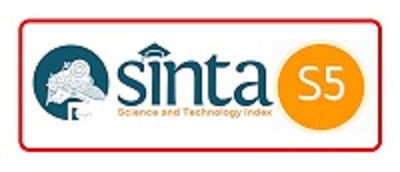The Uncertainties in the World of Microfinance
DOI:
https://doi.org/10.29240/disclosure.v4i2.10546Keywords:
Shifts, Shocks, Liquidity, CreditworthinessAbstract
Despite the shifts and shocks, microfinance overcomes the obstacles by making adjustments for the people. The most crucial principle is to ensure people get what they want and need for their businesses. Business growth is assisted by extended loan repayment time. The liquidity of the assets awaits their business opportunities to make it even. Their creditworthiness also brings another new chapter in making them eligible for the business. Financial funding sources are coming from reliable ones and looking at their business performance. Despite these fundamental promises, they attempt to take some challenges and make them work and adaptable so people can have the confidence to endure them. One of the instances is the interest rates raised quite higher than conventional banks in increasing risk and reducing their credibility of repaying their MFI loans. This review paper provides an overview of describing and summarising the findings by other researchers to understand and make sense of microfinance institutions as financial helpers as they allow them to undergo financial inclusion despite the poverty that they have to face every day. Thus, in tougher situations, they might have to regain their strengths and weaknesses in embarking on a new journey in microfinance institutions. They need guidance and knowledge-seeking when it comes to surviving the struggles in the financial world. The targeted groups of study in a world population seem to deserve more attention and the lack of awareness of microfinance institutions' drawbacks makes them rethink the structure and understanding of the problem.
Downloads
References
Alhassan, Y., & Nwagbara, U. (Eds.). (2021). Microfinance and Sustainable Development in Africa. IGI Global.
Downloads
Published
How to Cite
Issue
Section
Citation Check
License
Copyright (c) 2024 Nur Aifiah Binti Ibrahim

This work is licensed under a Creative Commons Attribution-NonCommercial-ShareAlike 4.0 International License.
Authors who publish with this journal agree to the following terms:
- Authors retain copyright and grant the journal right of first publication with the work simultaneously licensed under a Creative Commons Attribution License (CC BY-NC-SA 4.0) that allows others to share the work with an acknowledgment of the work's authorship and initial publication in this journal.
- Authors are able to enter into separate, additional contractual arrangements for the non-exclusive distribution of the journal's published version of the work (e.g., post it to an institutional repository or publish it in a book), with an acknowledgment of its initial publication in this journal.
- Authors are permitted and encouraged to post their work online (e.g., in institutional repositories or on their website) prior to and during the submission process, as it can lead to productive exchanges, as well as earlier and greater citation of published work (See The Effect of Open Access).







